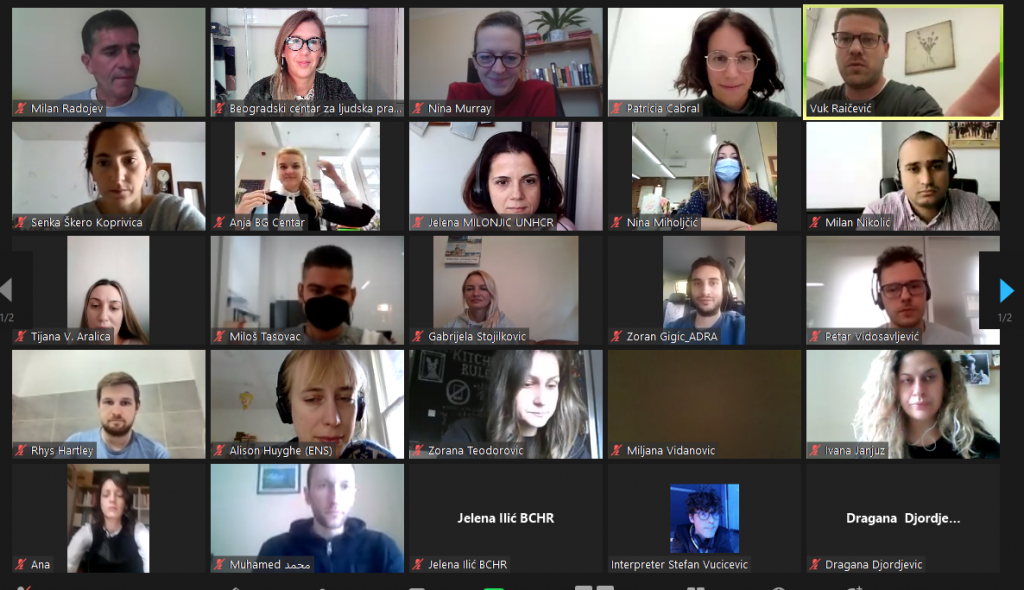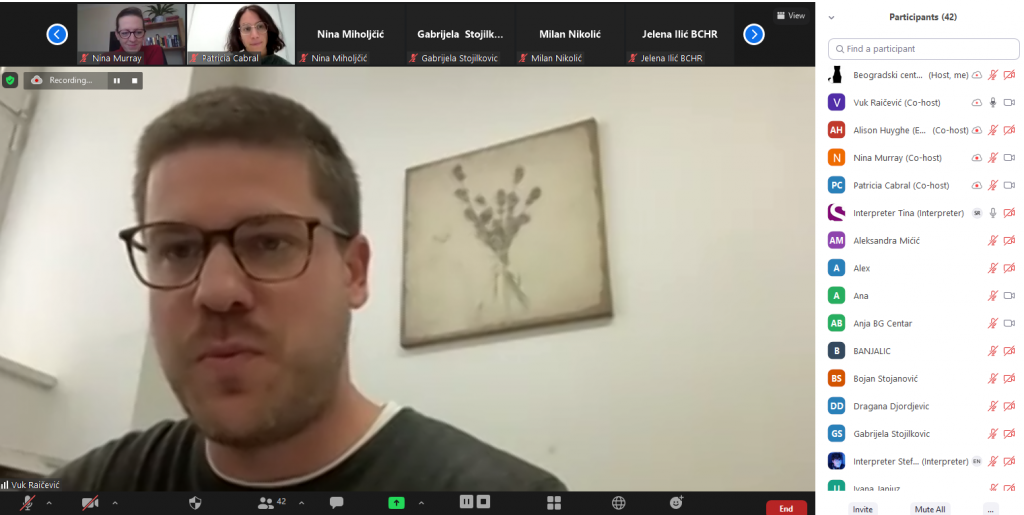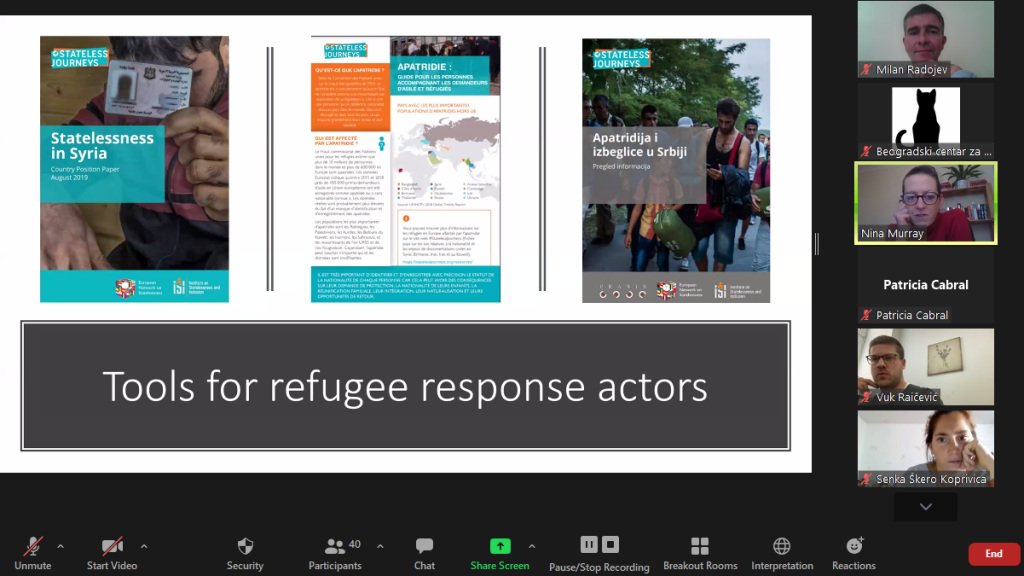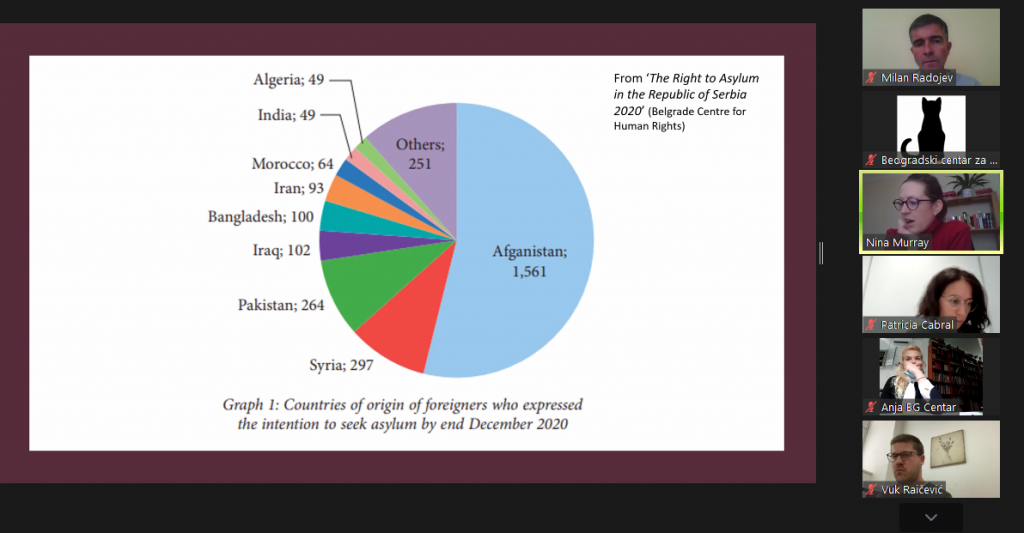 On 2 November 2021, the Belgrade Centre for Human Rights, with the support of the UNHCR Office in Belgrade, held an online panel discussion on Statelessness and the Refugee Law. The BCHR traditionally organizes events on issues of importance for the inclusion of refugees in the society of the Republic of Serbia.
On 2 November 2021, the Belgrade Centre for Human Rights, with the support of the UNHCR Office in Belgrade, held an online panel discussion on Statelessness and the Refugee Law. The BCHR traditionally organizes events on issues of importance for the inclusion of refugees in the society of the Republic of Serbia.
The reason for organizing the event was our initiative to analyze the position of stateless persons who are also refugees, with reference to the general legal status of stateless persons, then the main challenges faced by refugees who are also stateless persons, as well as the presentation of individual examples from practice.
The panelists were Nina Murray and Patricia Cabral from the European Network on Statelessness (ENS) and Milan Radojev from NGO Praxis Serbia. The event was opened by Sonja Tošković, the Executive Director of the Belgrade Centre for Human Rights and the moderator was Vuk Raičević, legal advisor of the Belgrade Centre for Human Rights.
The first part of the panel discussion was devoted to general issues related to statelessness. Milan Radojev spoke about the concept of statelessness and its causes, international instruments related to statelessness, the position and rights of stateless persons. He then explained the procedures for determining the status of stateless persons, prevention of statelessness and the position of stateless persons in Serbian legislation.
Nina Murray and Patricia Cabral presented an overview of the relationship between the refugee law and statelessness and why statelessness is relevant in the refugee context. The usual profiles of stateless refugees were analyzed, as well as the main challenges for stateless refugees in Europe and the analysis of international standards for their protection. Examples of good practice from other countries were presented, and Vuk Raičević also presented examples from practice and challenges in the context of Serbia. Representatives of the European Network for Statelessness presented to the participants of the panel discussion the tools and resources to support the work of lawyers, decision makers and communities.
An open discussion was held at the end of the panel. Among the 42 participants in this event were representatives of several state institutions, then the Office of the High Commissioner for Refugees in Belgrade, as well as representatives of international organizations and colleagues from the civil sector.
We also saw this event as an opportunity to consider the possibilities of joint multisectoral action to improve the current situation in this area in our country, exchange experiences, as well as future cooperation.
The panel discussion is part of the project “Support to Refugees and Asylum Seekers in Serbia”, which the Belgrade Center for Human Rights is implementing with the support of the UNHCR.










